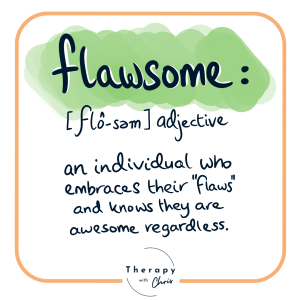Have you ever extended huge kindness to the people in your life, yet been remarkably harsh with yourself on a regular basis? Much of the time, we wouldn't dream of speaking to a friend the way we speak to ourselves.
Self-compassion isn't about pity or making excuses for our less than glowing behaviour. Rather, it's about treating ourselves with the same kindness and understanding we would offer a good friend facing similar struggles. As researcher Kristin Neff explains, effective self-compassion techniques involve three key components: self-kindness, common humanity and mindfulness.
The Inner Critic's Familiar Voice
Most of us are intimately familiar with our inner critic - that harsh internal voice that highlights our mistakes, magnifies our flaws and constantly reminds us of our shortcomings. This voice often develops early in life as a misguided attempt to motivate improvement or protect us from making mistakes.
Clients often describe their inner critic as ever-present, constantly providing negative commentary on every decision and action. Often, that nagging voice becomes loudest during really challenging times, when they need support the most. Through our therapeutic work, using a range of self-compassion techniques, the starting point is usually recognising how this harsh self-talk actually hinders rather than helps progress.
The Three Pillars of Self-Compassion Techniques
Self-Kindness vs Self-Judgement
Self-kindness involves speaking to ourselves with warmth and understanding, particularly during difficult moments. Instead of berating ourselves for mistakes, we learn to respond more gently. This doesn't mean lowering standards or avoiding accountability; rather, we approach our imperfections with curiosity rather than condemnation.
Consider the difference between these internal responses to making an error at work:
- Harsh: "I'm such an idiot, I always mess things up!"
- Self-compassionate: "That was a mistake. I'm human and I stuff up sometimes. What can I learn for next time?"
Common Humanity vs Isolation
When we're struggling, it's easy to feel alone in our suffering. Effective self-compassion techniques remind us that difficulty, failure and imperfection are part of the shared human experience. Every person faces challenges, makes mistakes and experiences pain - you're not uniquely flawed or broken. Perhaps, instead, you are 'flawsome'... This perspective shift can be profoundly healing. Rather than thinking "Why me?" we might consider "This is what it means to be human." This recognition connects us to others rather than isolating us in our struggles.
This perspective shift can be profoundly healing. Rather than thinking "Why me?" we might consider "This is what it means to be human." This recognition connects us to others rather than isolating us in our struggles.
Mindfulness vs Over-identification
Mindfulness in self-compassion techniques means observing our thoughts and emotions without becoming overwhelmed by them. We acknowledge our pain without either suppressing it or becoming completely consumed by it. This balanced awareness allows us to respond thoughtfully rather than react automatically.
Practical Self-Compassion Techniques
Developing self-compassion requires practice, much like strengthening a muscle. Here are some evidence-based self-compassion techniques I share with clients:
The Self-Compassion Break
When facing difficulty, pause and ask yourself:
- What am I feeling right now?
- Can I acknowledge that this is a moment of suffering?
- How can I be kind to myself in this moment?
This technique helps interrupt automatic self-criticism and creates space for a more compassionate response.
The Friend Test
Before engaging in harsh self-criticism, ask: "Would I speak to my best friend this way?" If not, consider how you might rephrase your internal dialogue more compassionately. This is one of the most accessible self-compassion techniques for beginners.
Physical Comfort Gestures
Self-compassion techniques aren't just mental, they're physical too. Place a gentle hand on your heart, give yourself a hug or engage in any physical gesture that feels comforting and supportive. Research shows that physical touch activates the care system in our brains.
Writing a Self-Compassionate Letter
When facing a particular struggle, write yourself a letter from the perspective of an unconditionally loving friend. Acknowledge your pain, remind yourself of your common humanity and offer yourself kindness. This technique helps externalise compassionate perspectives.
The Ripple Effect of Self-Compassion Techniques
 Many people resist learning self-compassion techniques, fearing they will make them lazy, self-indulgent or complacent. Research actually suggests the opposite; self-compassion techniques increase motivation, resilience and personal growth. When we feel secure and supported (even by ourselves), we're more likely to take healthy risks, learn from mistakes and persist through challenges.
Many people resist learning self-compassion techniques, fearing they will make them lazy, self-indulgent or complacent. Research actually suggests the opposite; self-compassion techniques increase motivation, resilience and personal growth. When we feel secure and supported (even by ourselves), we're more likely to take healthy risks, learn from mistakes and persist through challenges.
As we develop greater self-compassion through consistent practice of these techniques, the benefits extend beyond our relationship with ourselves. We often find ourselves naturally more patient and understanding with others. Our relationships improve because we're not constantly seeking external validation to compensate for internal criticism.
Learning to be kind to yourself through self-compassion techniques isn't selfish - it's essential. In a world that often emphasises achievement over wellbeing, these practices offer a refuge of understanding and acceptance. They provide the emotional safety net that allows us to take risks, make mistakes and grow into our fullest potential.

